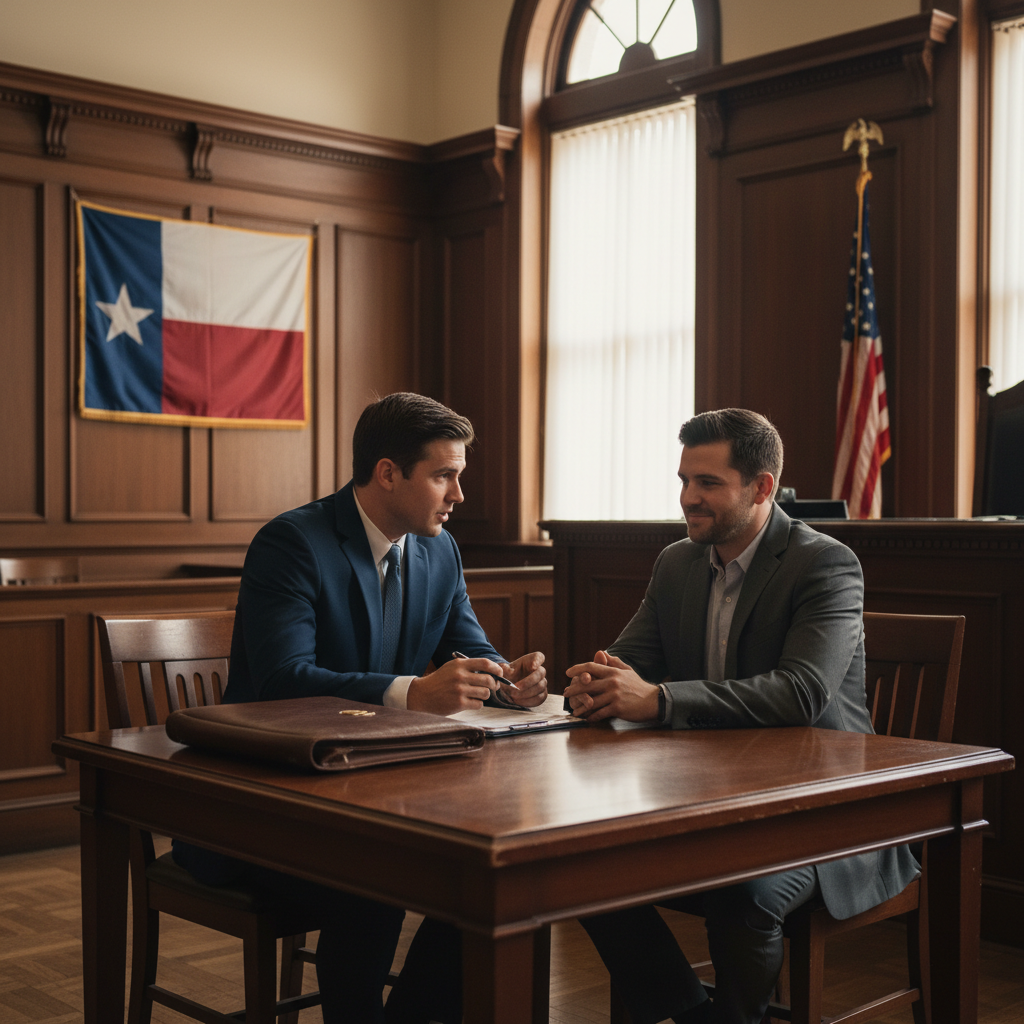When you’re targeted in a federal investigation, it can feel like the full weight of the U.S. government is on your shoulders. Federal agencies have nearly limitless resources, and the prosecutors are among the most skilled in the legal field. In this high-stakes environment, your federal criminal defense attorney is more than just a legal representative; they are your shield, your advocate, and your strategic guide through an intimidating and complex process.
This article will detail the critical role a defense attorney plays in protecting your rights. We will cover the importance of hiring counsel early, the strategies used to challenge the prosecution’s case, and how an attorney navigates the crucial decisions between plea negotiations and trial.
The Critical Importance of Early Intervention
Many people make the mistake of waiting until they are formally charged to hire an attorney. In the federal system, that can be a catastrophic error. Federal investigations are often long and thorough, taking place for months or even years before an indictment is issued. The moment you suspect you are under investigation—whether you’ve been contacted by federal agents, received a subpoena, or learned of an inquiry from colleagues—is the moment you need to secure legal counsel.
Guiding You Through the Investigation Phase
An attorney’s first job is to protect you during the investigation. Federal agents from agencies like the FBI or IRS are highly trained in interrogation techniques designed to elicit information. They may try to speak with you under the guise of an informal chat or suggest that hiring a lawyer makes you look guilty.
Your attorney will immediately become the point of contact for all communication with investigators. This prevents you from inadvertently making statements that could be twisted or used against you later. Your lawyer will ensure you do not consent to improper searches or answer questions that could jeopardize your case. This early intervention is fundamental to preserving your constitutional rights, including your right to remain silent.
Shaping the Pre-Indictment Narrative
During the pre-indictment phase, a proactive defense attorney can sometimes influence the outcome before charges are even filed. They can open a line of communication with the Assistant U.S. Attorney (AUSA) assigned to the case to present your side of the story. By providing exculpatory evidence (evidence that suggests innocence) or highlighting weaknesses in the government’s potential case, an attorney may be able to persuade the prosecutor to pursue lesser charges or, in some instances, to decline prosecution altogether.
Challenging the Government’s Evidence
Once an indictment is handed down, the case moves into a new phase. Your attorney receives the government’s evidence through a process called “discovery.” A key part of a federal defense attorney’s role is to meticulously scrutinize every piece of this evidence and identify opportunities to challenge it.
Filing Pre-Trial Motions
A primary strategy is filing pre-trial motions to suppress evidence. These legal motions argue that certain evidence was obtained in violation of your constitutional rights and should therefore be excluded from trial. Common motions include:
- Motion to Suppress Evidence from an Illegal Search: If the government found evidence by searching your home, car, or computer without a valid warrant or probable cause, your attorney will argue to have that evidence thrown out under the Fourth Amendment.
- Motion to Suppress Statements: If you were interrogated without being read your Miranda rights, or if your statements were coerced, your attorney can file a motion to prevent those statements from being used against you.
- Motion to Dismiss the Indictment: In cases where there are fatal flaws in the indictment itself or issues with the grand jury process, an attorney may move to have the entire case dismissed.
Successfully suppressing key evidence can cripple the prosecution’s case, sometimes forcing them to offer a much better plea deal or even drop the charges.
Navigating Plea Negotiations
The vast majority of federal criminal cases—over 95%—are resolved through plea agreements rather than trials. Federal prosecutors build their cases carefully and typically only bring charges they are confident they can prove. Therefore, your attorney’s skill as a negotiator is paramount.
Analyzing the Strengths and Weaknesses
An experienced federal defense lawyer provides a realistic assessment of your situation. They will analyze the strength of the government’s evidence, the potential defenses, and the likely outcomes if the case goes to trial. This honest counsel is crucial for you to make an informed decision about whether to accept a plea or fight the charges in court.
Arguing for the Best Possible Deal
If a plea is the best strategic option, your attorney’s job is to secure the most favorable terms possible. This involves much more than just agreeing to plead guilty. A skilled negotiator can:
- Negotiate the Charges: Argue for a plea to a lesser offense, which may carry a lower statutory penalty and fewer collateral consequences.
- Contest the Sentencing Guidelines: The Federal Sentencing Guidelines are complex and have a massive impact on the length of a sentence. Your attorney will argue for a lower guideline calculation by challenging factors like the alleged financial loss in a fraud case or the drug quantity in a trafficking case.
- Secure a Cooperation Agreement: In some cases, providing substantial assistance to the government can lead to a significant sentence reduction. Your lawyer will negotiate the terms of any such agreement to ensure you are protected.
Preparing for and Winning at Trial
If a plea agreement is not in your best interest or is not possible, your attorney will prepare to defend you at trial. Federal trials are complex and require a lawyer who is a skilled and experienced litigator.
Building a Defense Strategy
Trial preparation involves interviewing witnesses, consulting with expert witnesses (such as forensic accountants or digital forensics experts), and crafting a compelling narrative to present to the jury. Your attorney will develop a theme for the defense, whether it’s mistaken identity, lack of intent, or showing that the government simply cannot prove its case beyond a reasonable doubt.
Executing in the Courtroom
During the trial, your attorney is your champion in the courtroom. Their role includes:
- Jury Selection: Selecting jurors who are likely to be fair and impartial.
- Cross-Examination: Questioning the government’s witnesses to expose inconsistencies, biases, or weaknesses in their testimony.
- Presenting Defense Evidence: Calling witnesses and presenting evidence that supports your innocence.
- Making Legal Arguments: Arguing points of law to the judge and delivering persuasive opening and closing statements to the jury.
Your Advocate from Start to Finish
From the first hint of an investigation to the final verdict or sentencing hearing, a federal criminal defense attorney is your essential advocate. They protect your constitutional rights, challenge the government’s case at every turn, and provide the strategic guidance necessary to navigate the complexities of the federal justice system. Facing federal charges is not a battle you should ever fight alone. Having the right lawyer by your side can make all the difference in the outcome and your future.






